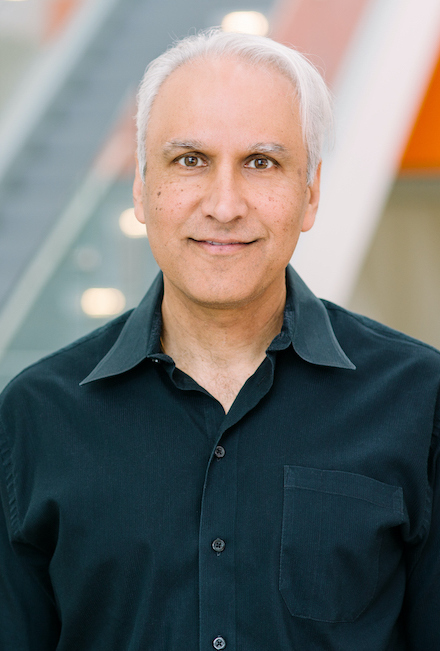 The 2024 iCMLf Rowley Prize is awarded to Professor Neil P Shah
The 2024 iCMLf Rowley Prize is awarded to Professor Neil P Shah
The iCMLf is delighted to announce that Professor Neil P Shah, the Edward S. Ageno Distinguished Professor in Hematology/Oncology and a Professor of Medicine at the University of California, San Francisco (USA) has been awarded the 2024 Rowley Prize. Professor Shah's remarkable career trajectory and pioneering translational research, deeply rooted in molecular studies, has significantly contributed to our understanding of molecular mechanisms of resistance to TKI therapy and has led to vital breakthroughs in the development of treatment strategies to overcome resistance.
The iCMLf Rowley Prize named after Dr Janet Rowley recognises individuals who have made exceptional lifetime achievements in advancing the understanding of the biology of CML.
‘His research demonstrated how molecular insight into TKI resistance could guide the development and design of second generation TKI’s. Neil’s translational studies let to the clinical investigation and approval of dasatinib as well as the approval of reduced toxicity, once daily dosing of dasatinib. He also showed that sequential TKI therapy selects for compound BCR::ABL1 kinase domain mutations that can alter the resistance profile of mutants. Neil is a very worthy winner and I congratulate him on his achievements’ (Professor Susan Branford)
Pioneering translational research overriding molecular mechanisms of resistance
Professor Shah's contributions have transcended the confines of the laboratory, profoundly impacting clinical practice and patient care and his academic journey is marked by a series of notable achievements and ground-breaking discoveries. At the heart of Professor Shah's highly translational research work is a strong dedication to identifying and overcoming molecular mechanisms of resistance to targeted therapies.
His laboratory initially dissected molecular mechanisms of resistance to imatinib, and exploited this understanding to pre-clinically identify and clinically test novel compounds for the treatment of imatinib-resistant CML. Through collaborative efforts with Bristol-Myers Squibb, he identified dasatinib as a promising agent for the treatment of patients resistant to imatinib. He played a pivotal role in the clinical investigation and subsequent approval of dasatinib, as well as ponatinib, by the FDA and other regulatory agencies. He further demonstrated that potent, transient inhibition of BCR::ABL1 was sufficient to maintain efficacy of more prolonged inhibition, and clinically associated with improved tolerability. He has broadened these themes toward improving therapeutics targeting other pathologically activated tyrosine kinases such as FLT3 and KIT.
Current research focus
Professor Shah's research program continues to drive research and innovation aimed at improving therapeutic outcomes for patients with CML and other cancers. His current research focus is on:
- Identifying vulnerabilities of allosteric kinase inhibitors
- Dissecting molecular mechanisms of kinase activation
- Identifying and overriding on-target and off-target mechanisms of resistance to targeted therapeutics directed against targets such as FLT3, KIT, and mutant IDH
- Identifying mechanisms and mediators of oncogene addition
- Identifying the mechanisms of action of chromatin modifier inhibitors
Professor Neil Pravin Shah is the Edward S. Ageno Distinguished Professor in Hematology/Oncology and a Professor of Medicine at the University of California, San Francisco (UCSF) School of Medicine. He also serves as Director of the UCSF Molecular Medicine Residency Program. He received his BS from the University of California, Berkeley and his MD and PhD degrees from the David Geffen School of Medicine at the University of California, Los Angeles (UCLA). He remained at UCLA for his Internship and Residency training in Internal Medicine, as well as his Fellowship training in Hematology and Oncology. He currently serves as Chair of the National Comprehensive Cancer Network Chronic Myeloid Leukemia Guidelines Panel.
For more information about Professor Shah: https://cancer.ucsf.edu/people/shah.neil-pravin
For more information about the Shah Laboratory: https://shah.ucsf.edu/home










